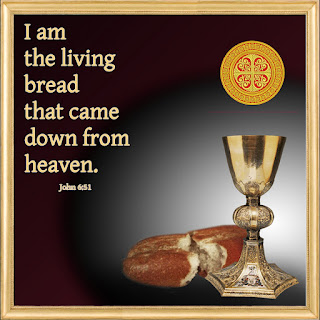Sep 1 Sun
Do I want what God wants? Can only a few be holy?
God looks after us throughout the day, hour by hour, helping us grow in holiness. He is always there, like a loving Father, ready to comfort and support us. Every day, we need to renew our desire to be holy. We become saints precisely through our work and daily duties. We should always be prepared to live our simple life as God intends, so that we can lovingly elevate the ordinary events of our day to a supernatural level and make them apostolically fruitful.
Saint Chantal was married and had six children. After her husband passed away, she performed many good works for the poor and the sick. She then founded the Order of the Visitation and led it wisely.
One day, she asked, "My dear daughters, most of the saints were not martyrs. Why do you think that is?"
After each nun shared her thoughts, she continued, "I believe it is because there is a martyrdom of love: God keeps His children alive to carry out their ordinary lives, full of love, for His glory, and this makes them martyrs and saints. I know this is the kind of martyrdom my daughters must endure."
One sister wanted to understand how this martyrdom would manifest in practice.
– "Give God your unconditional love and consent," she replied, "and then you will find out. He will be present in your soul, and, like a sharp sword, He will separate you from your self-centered pursuits."
Another sister asked how long this martyrdom would likely last.
– "From the moment we wholeheartedly surrender ourselves to God until the moment we die," she answered. "But this applies to generous hearts who remain faithful to love and do not retract their offering. Our Lord does not bother to make martyrs out of weak hearts and those with little love and constancy. He simply lets them continue in their own irrelevant ways. He waits, in case they give up and return to Him; He never forces our free will."
She was asked if this martyrdom of love is as painful as physical martyrdom.
– "We should not compare, but the martyrdom of love is no less painful than the physical kind because love is as strong as death, and martyrs of love suffer infinitely more by remaining alive and fulfilling God's will than if they were to give up their lives for their faith and endure suffering for a few moments."
For a child of God who views things from a supernatural perspective, the ordinary setbacks of the day provide an opportunity to draw closer to God, increase our spirit of sacrifice, and to improve in specific areas of our lives. This is how we can clearly demonstrate that our self-surrender is genuine and based on love. "How many people, who would willingly be nailed to a cross before the amazed gaze of thousands of spectators, cannot bear the daily annoyances with a Christian spirit! Think about which is more heroic." St. Josemaría
Video:
























